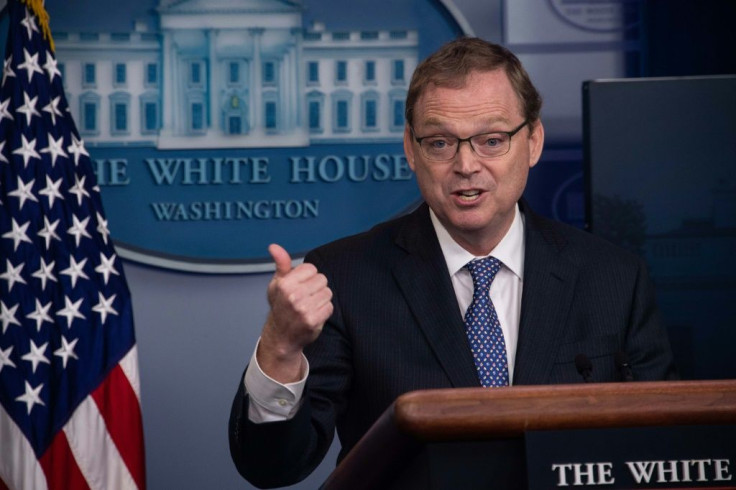Is Another Stimulus On The Way? White House Official Says Another Round of Aid Is In The Works

KEY POINTS
- More than $3 trillion in economic stimulus already has been passed
- Democrats want $3 trillion more but White House is more inclined to pare that back to $1 trillion
- Hassett says another round will be approved even if economic reports improve
White House economic adviser Kevin Hassett said Tuesday there likely will be one more round of coronavirus economic stimulus, probably before Congress begins its August recess. In an interview with the Wall Street Journal, Hassett said the odds of passage are “very high” even of jobs and other economic data show improvement.
Republican lawmakers appeared to be cooling to the idea of passing more stimulus funding in light of Friday’s May jobs report, which showed an unexpected 1.1-point drop in unemployment when it had been expected to rise by at least 6 points as a result of the shutdowns that were ordered to stem the spread of the coronavirus beginning in mid-March.
Congress already has approved more than $3 trillion in stimulus funds, but state and local governments have been clamoring for help to plug revenue losses that resulted from the lockdowns. Also, a number of programs approved in the CARES Act, including enhanced unemployment benefits, were set to expire by the end of July.
“There are a lot of things that really are necessary to make sure that once we open up that we actually lift off,” Hassett, chairman of the Council of Economic Advisers, told the Journal. “The odds of a Phase Four deal is something we talked with the president about last week. We even had a small group meeting this morning to talk about it. The odds of a Phase Four deal are very, very high.”
The White House reportedly favors $1 trillion more in aid while House Democrats already have approved a $3 trillion package that includes another round of direct payments to taxpayers.
Senate Majority Leader Mitch McConnell, who has said he’s in no hurry to pass any more stimulus legislation, acknowledged another round is likely but vowed it would be the last. He said any aid to state and local governments would need to be restricted to coronavirus expenses (the House bill provided $1 trillion for cash-strapped governments).
Chicago Mayor Lori Lightfoot said Tuesday the pandemic had blown a $700 million hole in the city’s budget while New York City Comptroller Scott Stringer warned the Big Apple is facing $3 billion in additional cuts. In California, Gov. Gavin Newsom tried to get the Legislature to agree to $14 billion in cuts, most of it coming from education spending.
Trump said Friday further stimulus measures are in the works, including a payroll tax cut, additional stimulus money and incentives for the restaurant and entertainment industries.
© Copyright IBTimes 2025. All rights reserved.






















